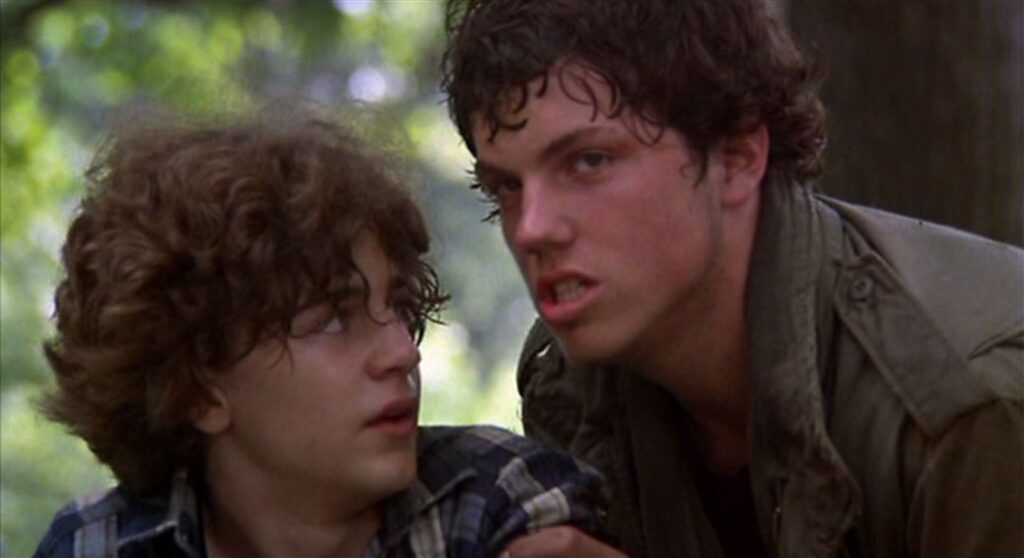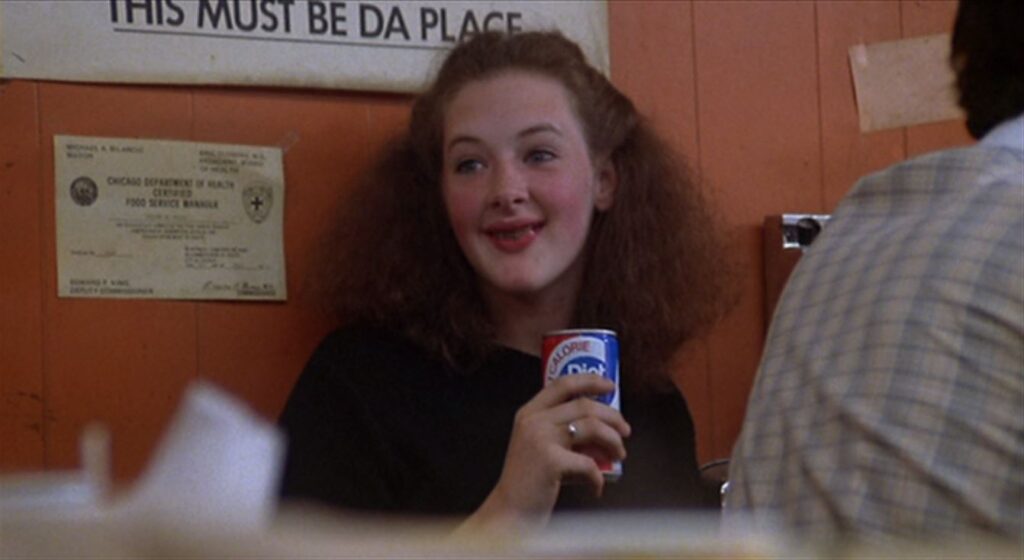Something of an unsung classic, Tony Bill’s directorial debut precedes and exceeds its John Hughes peers of the era.
When it was released 40 years ago, My Bodyguard got good reviews and did reasonably well at the box office. However, while it seems as if virtually every film from that era has developed some kind of loyal following these days, it seems to have vanished from the cultural conversation entirely. (That is, aside from a brief shout out in the deservedly forgotten Drillbit Taylor [2008].)
This would be a shame under ordinary circumstances, but it’s even more bewildering when you consider two things. First off, it’s far smarter and more insightful than the wildly venerated and comparatively hollow John Hughes films that would arrive on the scene a couple of years later. Second, it deals with themes that have remained all too relevant over the ensuing decades, leaving it positively ripe for rediscovery.
Fresh from his turn as the damp-eyed kid taken under Bill Murray’s wing in the summer camp hit Meatballs (1979), Chris Makepeace stars as Clifford Peache. He’s just arrived in Chicago with his father (Martin Mull) who’s the new manager of the Ambassador East hotel, and his adorably eccentric grandmother (Ruth Gordon, clearly cast against type). He’s a perfectly nice and decent kid but a little on the scrawny side, and that, combined with his arrival in a hotel limousine, doesn’t make for an auspicious first day at his new school. He immediately falls into the crosshairs of school bully Melvin Moody (Matt Dillon), who extorts money from the more vulnerable kids with a racket that has a certain crude elegance to it.

There’s another student at school, a big and hulking loner named Ricky Linderman (Adam Baldwin), who’s become the stuff of terror, having supposedly killed several people including his little brother. Moody’s ploy is to offer “protection” from Linderman to his classmates—if they don’t cough up, he’ll sic the bigger kid on them. Clifford may be small, but he’s smart enough to realize that the Linderman legend sounds a bit bogus. Soon he discovers that the only verifiable violent incident from his past involves the little brother, who accidentally died after playing with a gun he found.
This leads Clifford to his moment of inspiration: He’ll subvert Moody’s threats by screwing up the courage to ask Linderman to be his bodyguard, even offering to do his homework and pay him the protection money. Linderman refuses the offer at first, but when he catches Moody roughing up Clifford later on, he does step in to save the day. Clifford and Linderman slowly become friends and Clifford comes to realize that Linderman isn’t the hulking bully that he appears to be.
In fact, he’s still suffering trauma from his brother’s death. He prefers being thought of as a potentially dangerous psycho if it means that people will just leave him alone. With the help of Clifford, he slowly begins to come out of his shell, and the two even work together on rebuilding an old motorcycle.
Even if you haven’t seen My Bodyguard before, there’s an excellent chance you can probably figure out where the screenplay by Alan Ormsby goes from this point. (Yes, this is the same guy who wrote the ersatz Ed Gein biopic Deranged [1974]; the moody, erotic Cat People remake [1982]; and the supremely useless Porky’s II: The Next Day [1983]). This includes Moody’s plan to reestablish dominance, additional revelations about Linderman’s past, and a final confrontation in which Clifford must learn to finally stand up for himself.

These developments may be predictable, but it doesn’t really matter in this case. The film has long since established itself as one not driven solely by the plot’s machinations. If that were the case, My Bodyguard would almost inevitably descend into a series of increasingly elaborate and hollow skirmishes marking time until the inevitable big fight at the end. At best, it would become a cartoon. At worst, it would become Three O’Clock High (1987).
In fact, it quickly becomes obvious that Ormsby and Tony Bill (Oscar-winning producer of The Sting [1973] making his directorial debut) have made a character study than anything else. And it’s an uncommonly smart and sensitive one at that, an approach that must have seemed startling at the time for a film aimed at younger audiences. The characters aren’t one-dimensional caricatures but real flesh-and-blood people who remind viewers of their own adolescent trials.
Clifford is smart and resourceful but never crosses the line into becoming overly precocious. Linderman isn’t so much a menacing hulk but an ordinary kid—maybe a bit bigger than most—who is struggling with painful emotions simply too big for him to effectively deal with on his own. Watching these two as their friendship develops over time is so fascinating to observe that by the time the inevitable final conflict rolls around, it almost feels like an afterthought. Even Moody is more than the usual cinematic schoolyard bully. He is mean, of course, but he is clever, which is what makes him even more fearsome.
And since My Bodyguard is so centered on its characters, the chief reason for its success is the quality of the performances. As Clifford, Makepeace—who worked off and on for the next few years but who hasn’t had a film acting credit since Full Disclosure in 2001—is endearingly ordinary without becoming cutesy. He no doubt takes many viewers back to their own school days to that terrifying moment when it seemed as if two-thirds of their classmates had suddenly grown a foot or two over the summer. Baldwin would go on to play tough guys for the likes of Stanley Kubrick in Full Metal Jacket (1987) and Joss Whedon on TV series Firefly (2002) and its big-screen spinoff, Serenity (2005). Here, however, he demonstrates finds just the right note of sensitivity for Linderman that makes him more than just a plot device.
[I]t’s far smarter and more insightful than the wildly venerated and comparatively hollow John Hughes films [… and] deals with themes that have remained all too relevant over the ensuing decades.
More so, Dillon is undeniably electric as Moody, a big teen idol at the time who achieved that status by appearing in ambitious films instead of the usual adolescent junk (Over the Edge [1979], Little Darlings [1980], Tex [1982], The Outsiders [1983], Rumble Fish [1983]). Mull also scores as Clifford’s loving and well-meaning father, though it is a bit odd to see him playing such a sincere and straightforward character. Eagle-eyed viewers will also notice brief appearances from such future stars as Joan Cusack, George Wendt, Tim Kazurinsky, and a pre-Flashdance (1983) Jennifer Beals.
My Bodyguard is not without a couple of flaws. There is some business involving Gordon’s character and her romantic entanglement with a visiting hotel executive (John Houseman) that’s mildly amusing, but it comes across as completely superfluous to the main thrust of the story. And while the screenplay does more or less earn its final showdown between Clifford and Moody, there is a part of me that kind of wishes Ormsby and Bill could have figured out a way to resolve matters without resorting to a physical confrontation at all. (That said, the one depicted here does manage to come across as dramatically satisfying without turning into a wholesale endorsement of violence.)
Those minor issues aside, the film is a smart, funny, painful, and knowing portrait of the perils of adolescence. It doesn’t resort to cheap shots or idiotic behavior and tackles potentially chancy material involving bullying, depression, and even gun violence. Better yet, it does so in ways that are sensitive and as timely for viewers today as when it first came out. If you haven’t seen it in a long time, you’ll be relieved to discover that it’s held up beautifully over time. If you haven’t seen it at all, you’re in for a real treat.